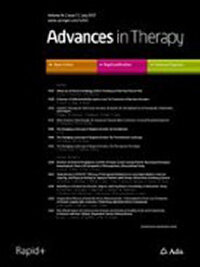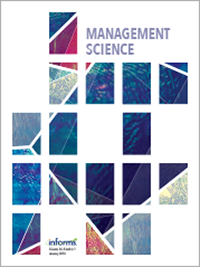Author Profile: Nektarios Oraiopoulos
Nektarios Oraiopoulos, PhD, is Professor of Operations and Technology Management at the Cambridge Judge Business School of the University of Cambridge. His research on innovation and R&D management has appeared in the leading journals of the field. He has won multiple awards and has been invited to make presentations at both academic and industry conferences. In addition to his academic work, he has advised entrepreneurial start-ups and has worked closely on research projects with numerous executives from the biopharmaceutical industry. He holds a Diploma in Electrical and Computer Engineering from the National Technical University of Athens, Greece, and a PhD in Business Administration from the Georgia Institute of Technology.

Why I Wanted to Write this Book
I am a firm believer of Kurt Lewin’s saying: “There is nothing more practical than a good Theory”. Over the past decades, business school academics and management scholars have made great contributions in our understanding of the biotech industry, but more often than not these contributions have not made the transition to the executive world. A key objective, and in fact, driving force, when we set out to write this book was to bring together the complex reality of running a biotech company with the insights offered by the academic literature on the topic. We hope that our work will motivate a dialogue that will strengthen the symbiotic relationship between theory and practice. Doing so will help entrepreneurs and investors to better navigate the biotech ecosystem, while it will allow management scholars to work on topics that can make an impact in an industry that affects all of us.
Recent Media and Publications
Roundtable: Healthcare, Pharma and Biotech in a Post COVID-19 World
July 2020
The focus of pharmaceutical procedures and dealmaking may change significantly in this uncertain period as the world deals with the fallout from the COVID-19 (coronavirus) pandemic, participants told a webinar organised by Cambridge Judge Business School that featured five graduates of the Cambridge Judge Business School’s Executive MBA programme.
The Risk of De-Risking Innovation: Optimal R&D Strategies in Ambiguous Environments
May 2020
(with Donald Drakeman)
This article develops a framework for driving innovation under highly ambiguous conditions. An analysis of the most novel medicines of the past 20 years shows that a very large group of small companies created more breakthroughs, at considerably less overall cost, than a much smaller group of very large companies. This article’s findings present the first large-scale empirical validation of the theoretical literature predicting the superiority of decentralized parallel searches in ambiguous environments. Accordingly, companies that attempt to “de-risk” the innovation portfolio by narrowing their search efforts to minimize failures run the risk of filtering out the next breakthrough.
How Drug Companies Can Increase Their R&D Effectiveness
December 2020
A study co-authored by Professor Stylianos Kavadias and Dr Nektarios Oraiopoulos at University of Cambridge Judge Business School, is featured in the Forbes article. The study demonstrates “how pharmaceutical executives can impact the success of their research and development” programs by carefully assessing and acting on information signals from their competitors.”
May 2020
(with Donald Drakeman and Christopher Loch)
We have studied the origins of the highest-priority new medicines of the last two decades – the ones that improve our treatment of patients with serious and life-threatening diseases. In other words: exactly what we need right now. The clear message is that command-and-control processes where the world’s leading experts come together to focus resources on what seem to be the most promising ideas — an approach that would be the natural tendency of almost any czar — is actually less likely to come up with something new and important. Instead, what we need is a multiple-shots-on-goal approach that would allow us to test as many and as diverse ideas as possible, some of which will seem crazy to some experts, at least until they start working (or can unambiguously be ruled out).
How Open-Source Medicine Could Prepare Us for the Next Pandemic
April 2020
A study on drug repurposing co-authored by Dr Nektarios Oraiopoulos is quoted in the article. The study found that “about 31 per cent of drugs approved by the FDA had the potential to treat an illness similar in nature to the original target disease, with a 67 per cent success rate.” But it’s much harder to repurpose an existing drug to treat a fundamentally different disease – study found that “only 18 per cent of drugs had potential in that capacity, with a 33 per cent success rate.”
Renovation as Innovation: is Repurposing the Future of Drug Discovery Research?
January 2019
(with Donald Drakeman and Arthur Neuberger)
Repurposing is increasingly hailed as a solution to the problems of the high costs and poor productivity of drug development. Instead of starting with a disease and beginning the laborious and expensive task of discovering a new drug, researchers can initiate the discovery process with a drug in hand, and simply look for the right disease. The question is: Will repurposing fulfill its promise and, if so, should we scale back our commitment to basic research and novel drug discovery, and focus instead on second-chance drugs?
When Science is Not Enough: A Framework Towards More Customer-Focused Drug Development
April 2017
(with William C.N. Dunlop)
The purpose of this study was to identify the key barriers to a customer-focused drug development process and develop a comprehensive framework to overcome them.
Methods
The paper draws on existing literature, both academic and practitioner, across a range of disciplines (innovation management, marketing, organizational behavior, behavioral economics, health economics, industry reports). On the basis of this extensive review, a conceptual framework is developed that offers concrete suggestions on how organizations can overcome the barriers and enable a more customer-focused development process.
Results
The barriers to collaboration are organized into three distinct categories (economic, behavioral, organizational), and within each category, a one-to-one mapping between barriers and solutions is developed.
Conclusion
The framework is specifically designed with the objective of offering actionable and practical advice to executives who face these challenges in their organizations. The paper provides a unique theoretical contribution by synthesizing findings from several academic disciplines with concrete examples from the pharmaceutical industry.
Lemons, or Squeezed for Resources? Information Symmetry and Asymmetric Resources in Biotechnology
2017
(with Donald Drakeman and Arthur Neuberger)
Thousands of biotech companies are developing promising products, but have insufficient resources to complete the clinical testing process, while large, well-funded companies have increasingly focused on the need to access external innovation. As a result, licensing deals are an essential and growing part of this industry. Yet, casting a shadow over the licensing market is the classic Lemons Problem: Does asymmetrical information put licensees at a severe disadvantage, leading to a market dominated by inferior opportunities, with the best products retained for internal development? Our analysis of clinical stage products developed over three decades shows that there is no Lemons Problem. We discuss the results of this first apples-to-apples analysis of the biomedical licensing market, and suggest reasons why the Lemons Problem does not exist where it might be most expected—in a high technology, knowledge-based industry.
Resource Allocation Decisions Under Imperfect Evaluation and Organizational Dynamics
January 2015
Research and development (R&D) projects face significant organizational challenges, especially when the different units who run these projects compete among each other for resources. In such cases, information sharing among the different units is critical, but it cannot be taken for granted. Instead, individual units need to be incentivized to not only exert effort in evaluating their projects, but also to truthfully reveal their findings. The former requires an emphasis on individual performance, whereas the latter relies on the existence of a common goal across the organization. Motivated by this commonly observed tension, we address the following question: How should a firm balance individual and shared incentives, so that vital information is both acquired, and equally importantly, disseminated to the entire organization? Our model captures two key characteristics of R&D experimentation: information is imperfect and it is also costly. Our analysis yields several important implications for the design of such incentive schemes and the management of R&D portfolios.








